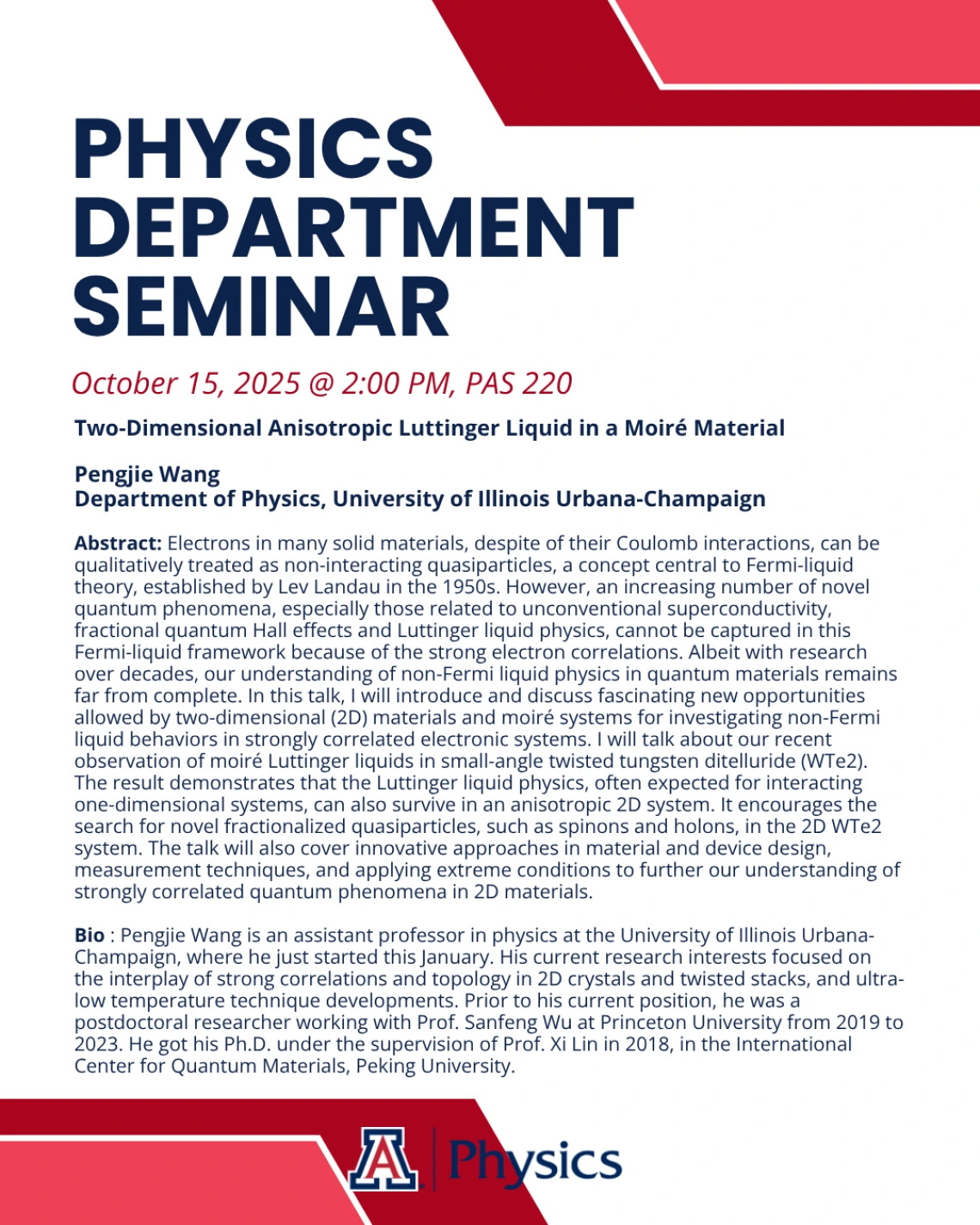Pengjie Wang, Department of Physics, University of Illinois Urbana-Champaign

When
Where
Two-Dimensional Anisotropic Luttinger Liquid in a Moiré Material
Pengjie Wang
Department of Physics, University of Illinois Urbana-Champaign
Abstract: Electrons in many solid materials, despite of their Coulomb interactions, can be qualitatively treated as non-interacting quasiparticles, a concept central to Fermi-liquid theory, established by Lev Landau in the 1950s. However, an increasing number of novel quantum phenomena, especially those related to unconventional superconductivity, fractional quantum Hall effects and Luttinger liquid physics, cannot be captured in this Fermi-liquid framework because of the strong electron correlations. Albeit with research over decades, our understanding of non-Fermi liquid physics in quantum materials remains far from complete. In this talk, I will introduce and discuss fascinating new opportunities allowed by two-dimensional (2D) materials and moiré systems for investigating non-Fermi liquid behaviors in strongly correlated electronic systems. I will talk about our recent observation of moiré Luttinger liquids in small-angle twisted tungsten ditelluride (WTe2). The result demonstrates that the Luttinger liquid physics, often expected for interacting one-dimensional systems, can also survive in an anisotropic 2D system. It encourages the search for novel fractionalized quasiparticles, such as spinons and holons, in the 2D WTe2 system. The talk will also cover innovative approaches in material and device design, measurement techniques, and applying extreme conditions to further our understanding of strongly correlated quantum phenomena in 2D materials.
Bio: Pengjie Wang is an assistant professor in physics at the University of Illinois Urbana-Champaign, where he just started this January. His current research interests focused on the interplay of strong correlations and topology in 2D crystals and twisted stacks, and ultra-low temperature technique developments. Prior to his current position, he was a postdoctoral researcher working with Prof. Sanfeng Wu at Princeton University from 2019 to 2023. He got his Ph.D. under the supervision of Prof. Xi Lin in 2018, in the International Center for Quantum Materials, Peking University.
Talk @ 2:00 PM in PAS 220, no Zoom option available



